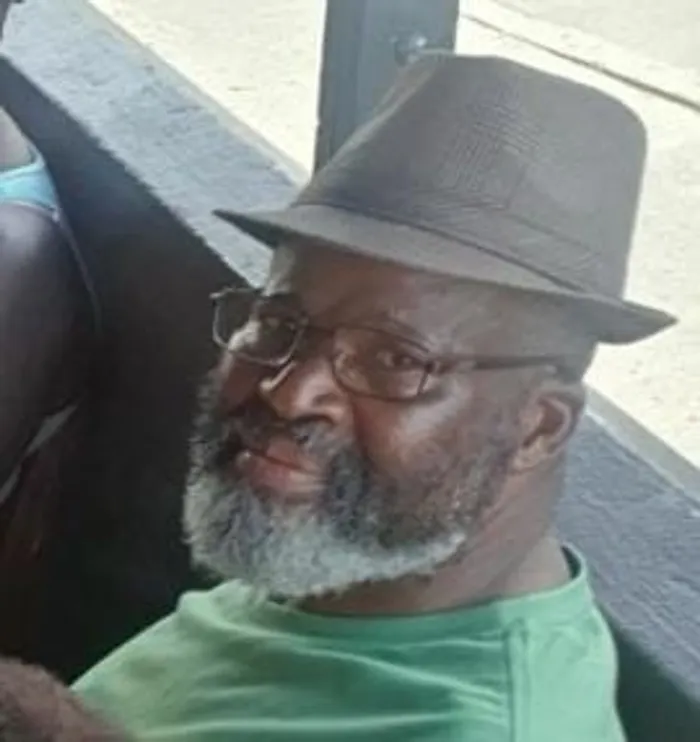Sun sets on Comrade Andile

Thembile Ndabeni
How many people know Comrade Andile Nwelende and his contribution in the struggle against Apartheid?
I first met Comrade Andile when the flames of 1985 were not yet finally extinguished by the evil Apartheid Regime. He was a real comrade, a political activist wearing many hats at the same time. As a result, you cannot be sure which one he put on first or which was one smaller, and which one was bigger.
Therefore, I am pleading with the people who know him to forgive me because I am sure I will not be able to follow the order of his involvement and activism. But, if you know about African praise-singers, there is a traditional one and a western one. The former does not prepare as they are guided by how they feel. Something inside drives them.
Coming from working in the mines, Andile was a sharp youthful trade unionist hailing from the “non- location” part of our communities, emaholweni (hostels).
He was a clear and committed trade unionist, a genuine comrade. I remember him in Cosatu locals where I was a co-ordinator. He was so sharp, vocal, and vociferous with deep feelings when representing workers and presenting the issues they were confronted with at work.
He exuded discipline and was very articulate. He was the kind of person you could learn from about the challenges at work.
He contributed a lot in bringing many workers with challenges confronting them at work to the local. That is what the locals were for, getting workers from all Cosatu-affiliated unions to present their challenges and experiences to be addressed in the locals.
This is where we found out that some shop stewards were bribed to betray workers they represented, but not him. He was part the underground structures.
Belonging to the underground structures involved political work and the “worst”, military (armed struggle). Though military was the most dangerous, political work was not child’s play either.
Taking part in any form of struggle was automatically a risk. Therefore, him belonging to both pillars, mass mobilisation and underground was already a double danger.
In the underground he was also involved in military work. He was given a “high” and obviously a risky task, to strengthen the underground. As the struggle was intensified especially after the “going down of the 1985 flame”, the enemy was aware that the other pillar, the underground, would be the most operated.
He operated in that pillar as per instruction without being caught. Those “clevers” who saw a “moegoe” in him must know that he was more advanced than those who are cleverer than them, their baas, the Apartheid Regime.
Those who were more educated than him, must know he passed the test they would have not passed with their academic achievements.
In the very same breath he worked as a fieldworker for T.E.A.M (The Ecumenical Action Movement) at New Flats, where he lived.
He was strategically deployed in the Western Cape Dwellers Association.
As a youth he was there to assist the elders contribute to the guidance and direction of the association. This association needed not only strong but a dynamic leadership in its fight for the needs of the hostel residents, which is why he qualified to be in a structure called Umzamo Development Project. This was for the continuation and advancement of the struggle of hostel residents. This was to advocate for the development of hostels in all respects, conversion of them into family units.
He also became a taxi operator as well. After the unbanning of the ANC, he continued with the struggle, from another front now, setting up of SACP (amakomsasa, as he would refer to the communists) and ANC structures. To him, as before, it was not for gain, but the cause he committed to for his life.
He was once the chairperson of community police forum in Langa. He did a diploma in Human Resources at Cape Tech (CPUT) and diploma at Elsenburg Agricultural College and became a farm manager at Ganzekraal Farming Trust in Stellenbosch.
And just like many who made an enormous contribution in the struggle, he died without being appreciated or rewarded.
He died at the age of 59 from diabetic complications. He had been living in Vrygrond in Retreat, and was buried at Mputhi, Baziya in Umthatha on Saturday June 25.
He died a preacher/elder of the Uniting Presbyterian Church in Southern Africa. He played his part, served his people with honesty and diligence. His background and contribution in the struggle and the community is enough to be a history syllabus.
∎ Thembile Ndabeni is a writer and archivist who lives in Langa